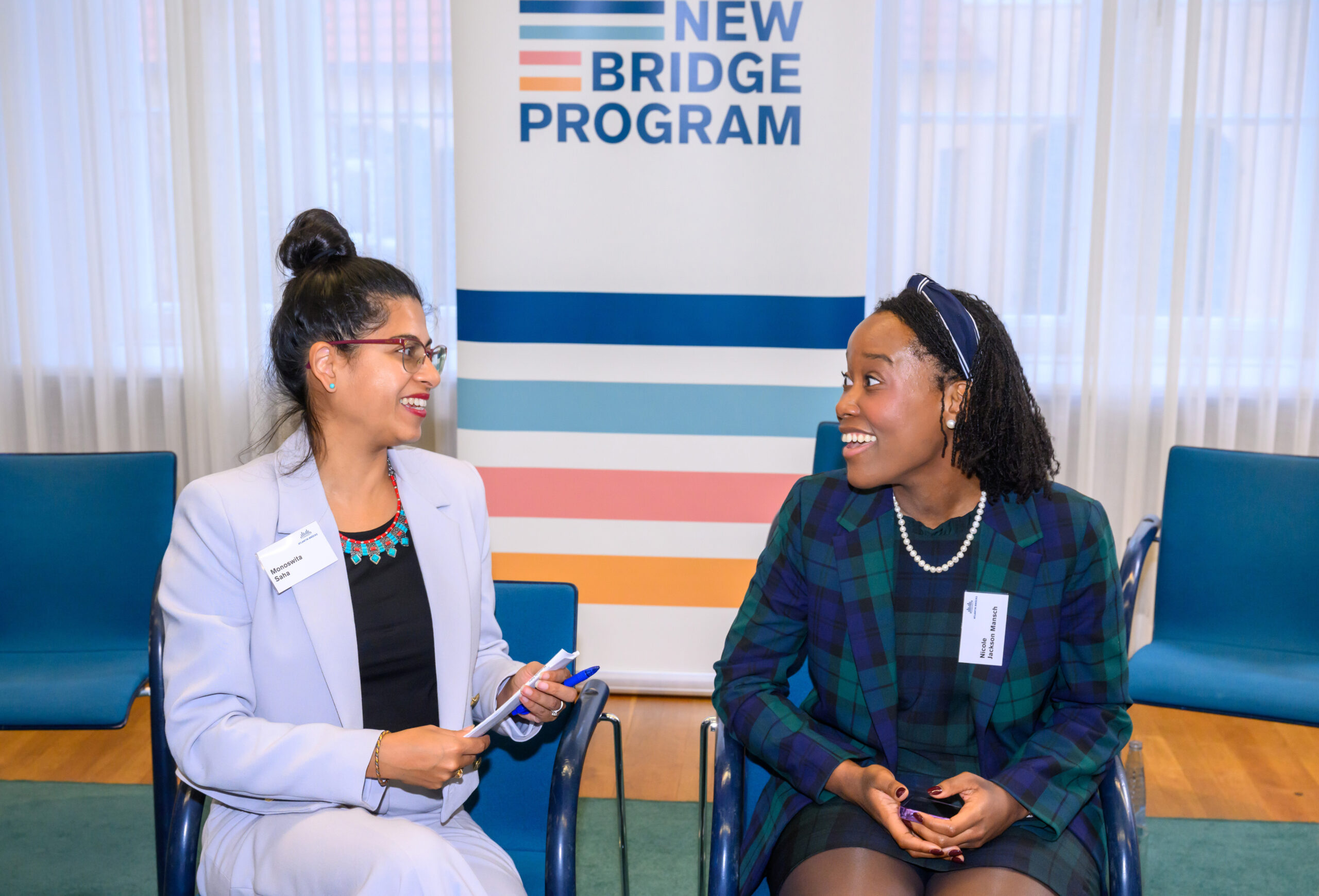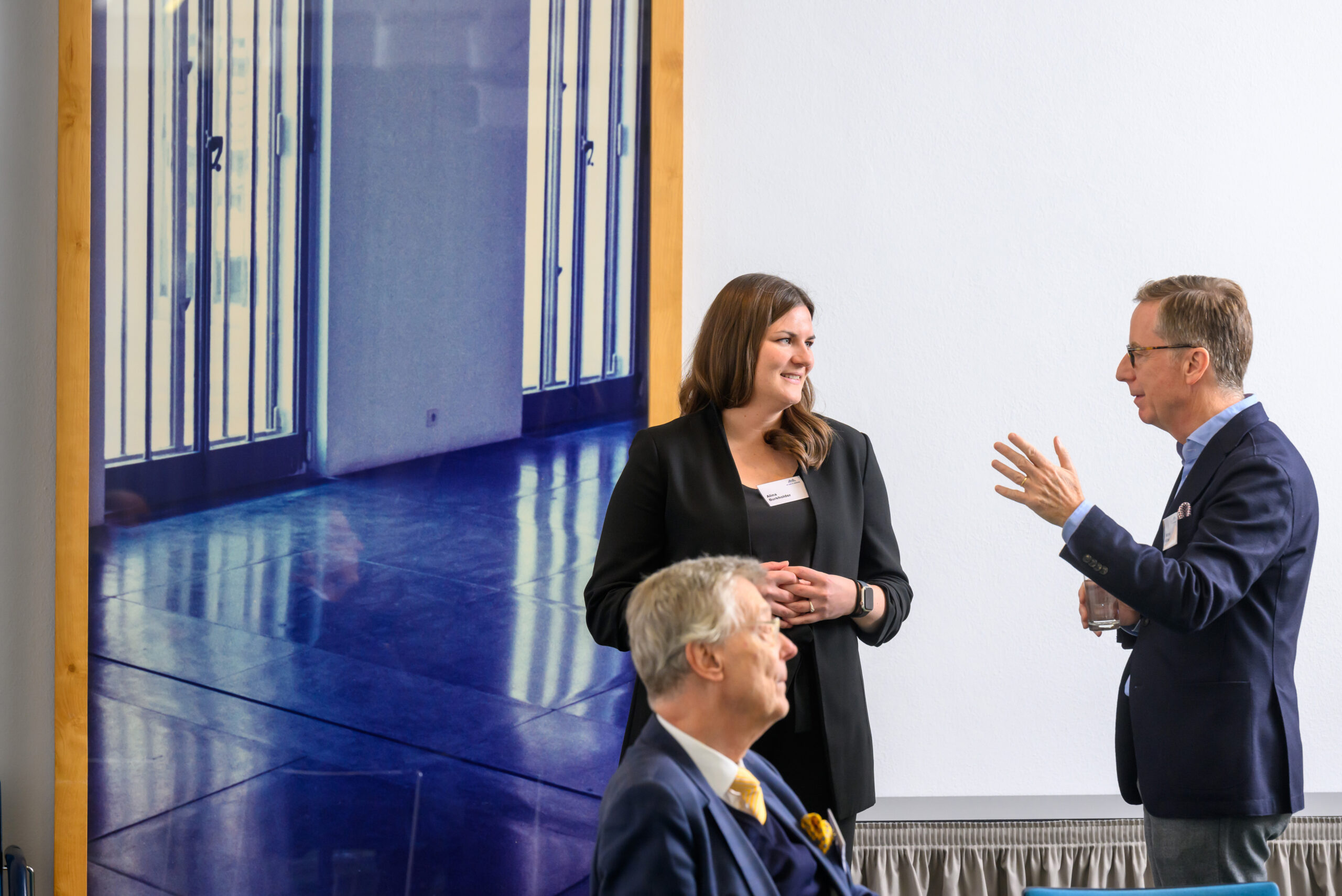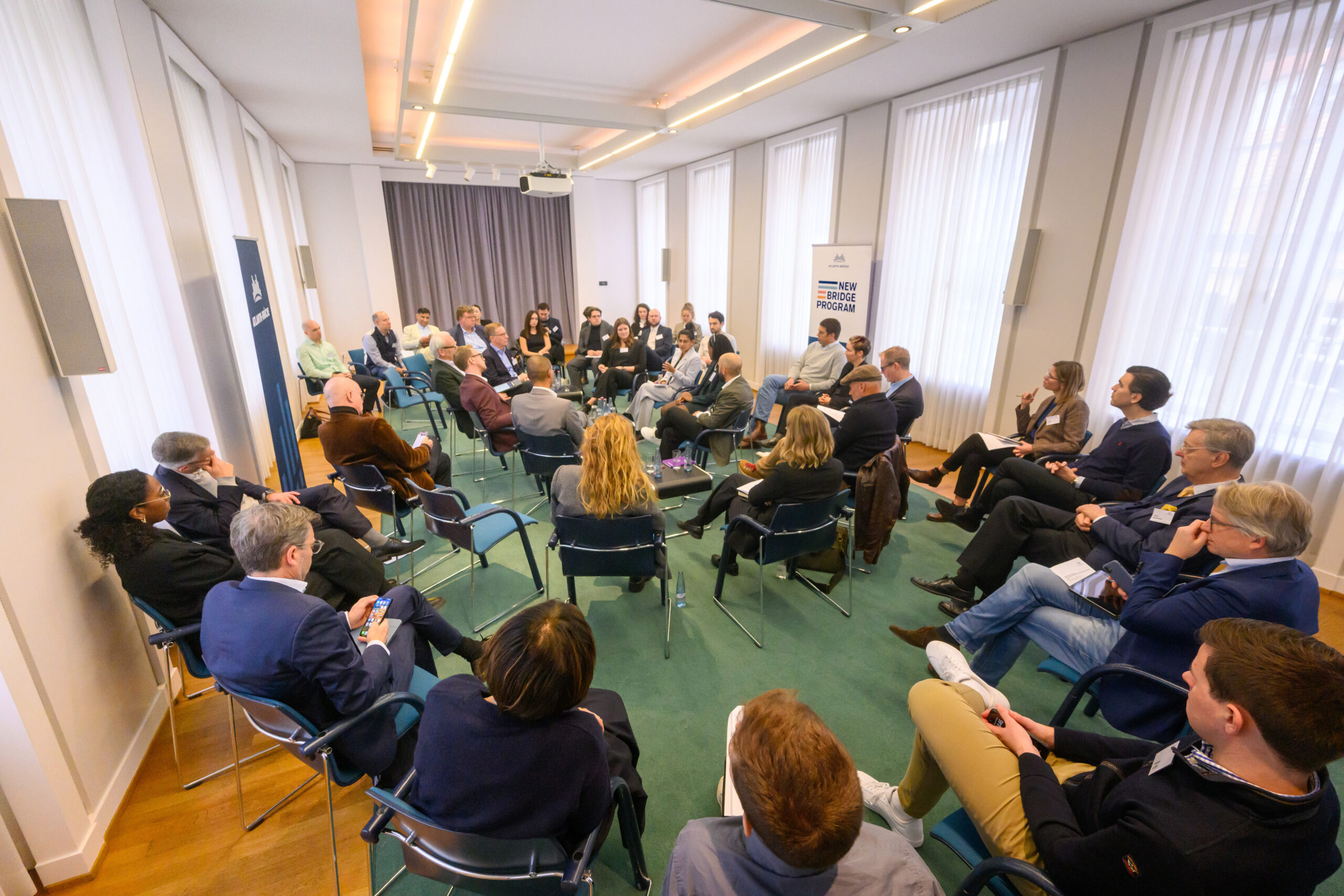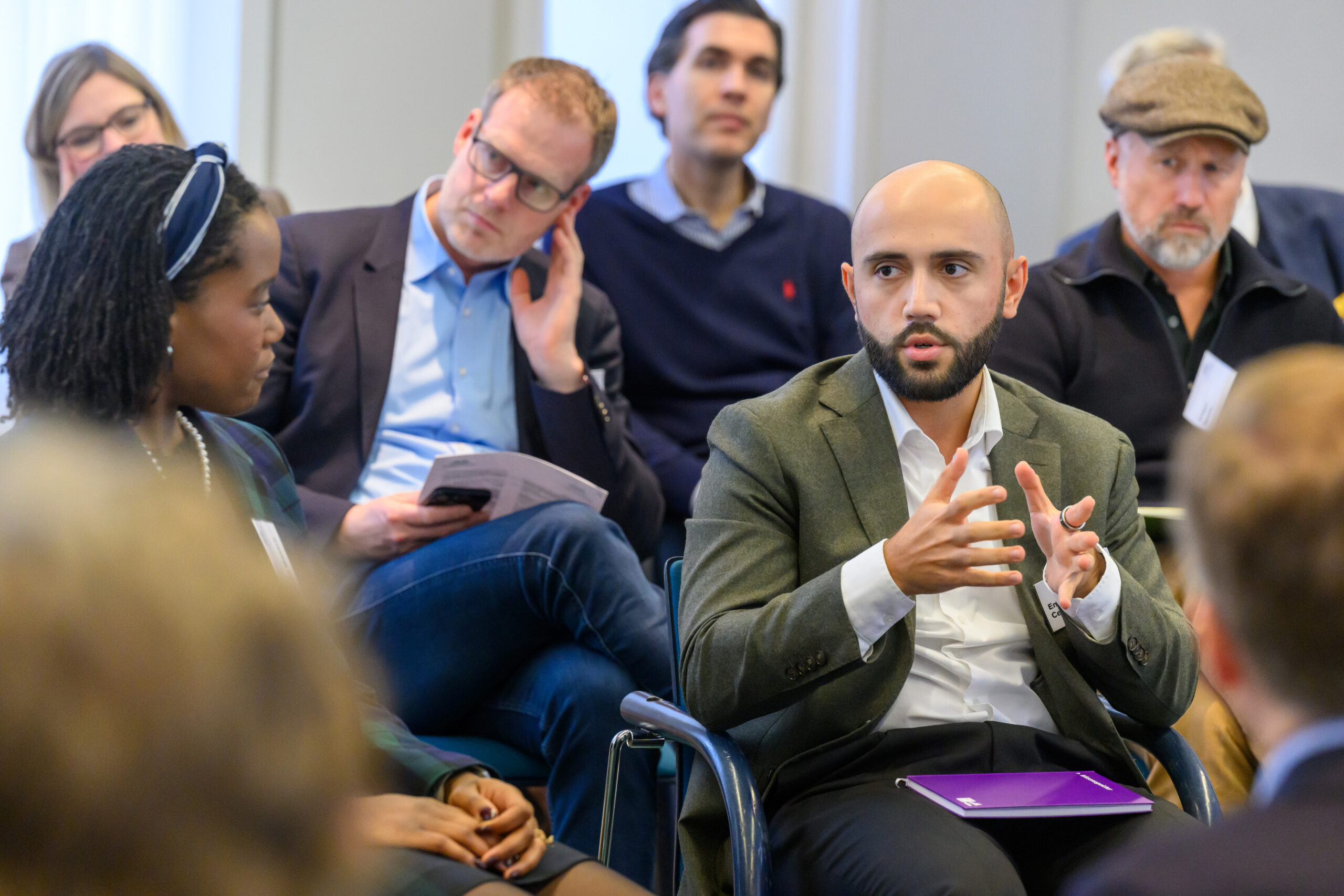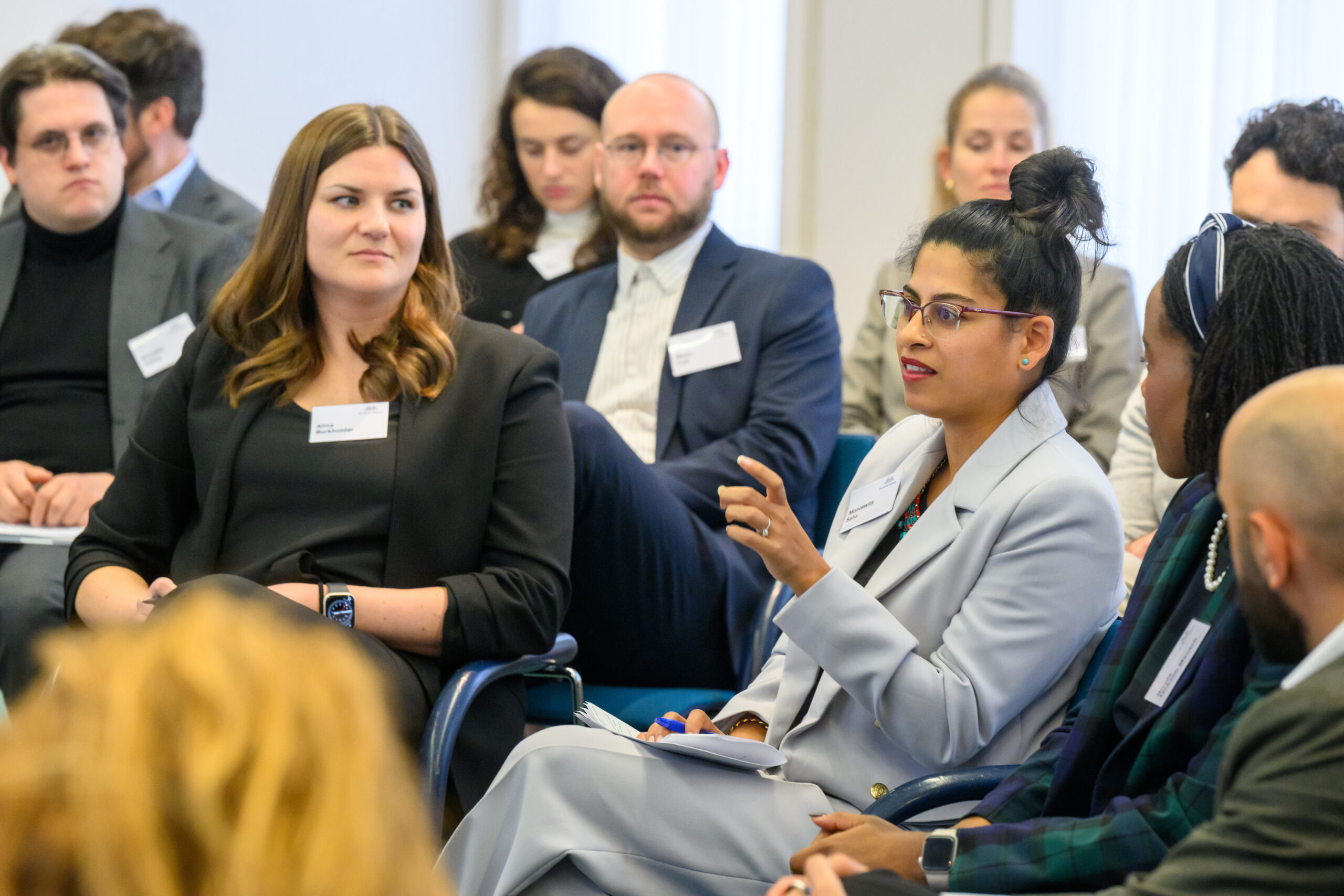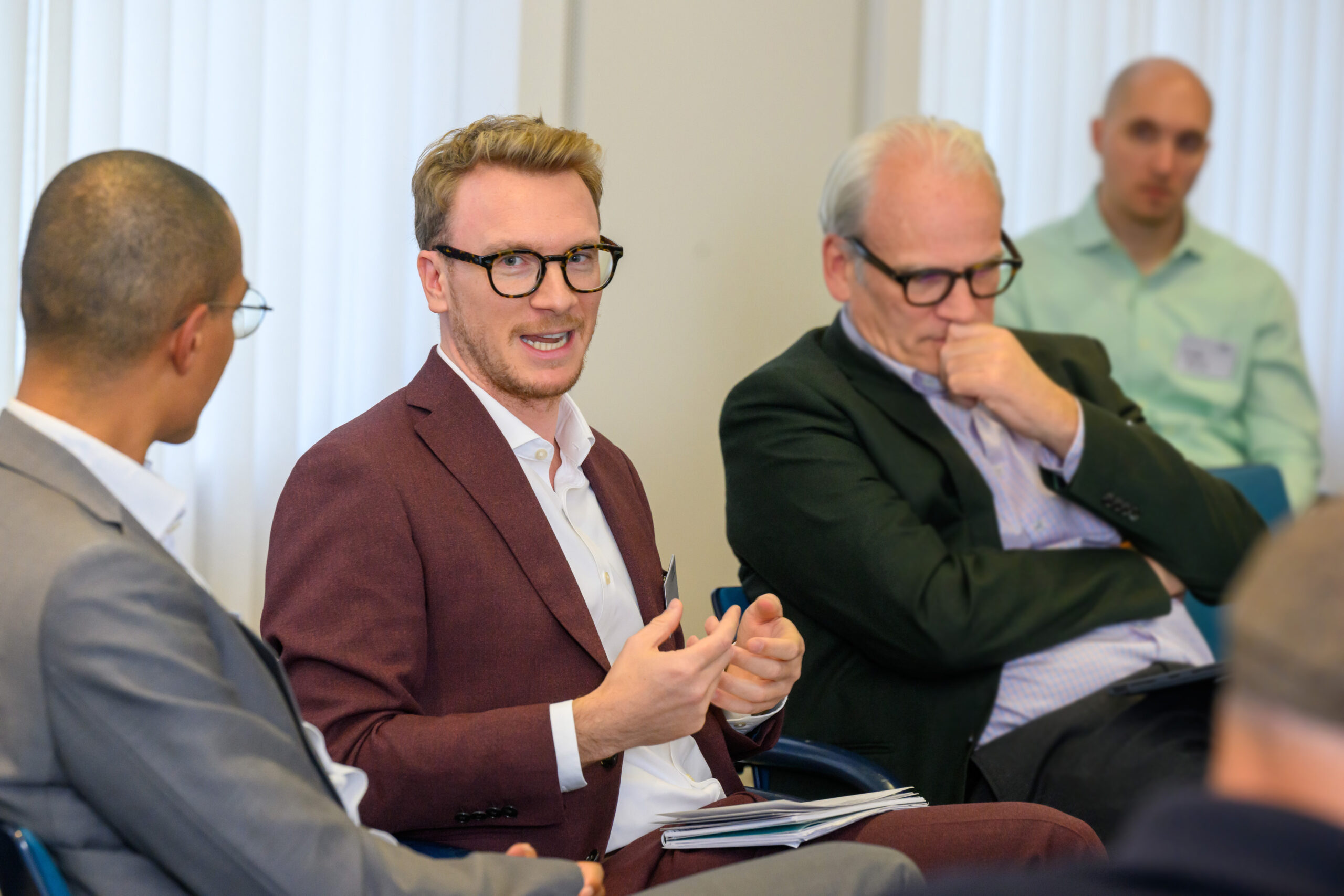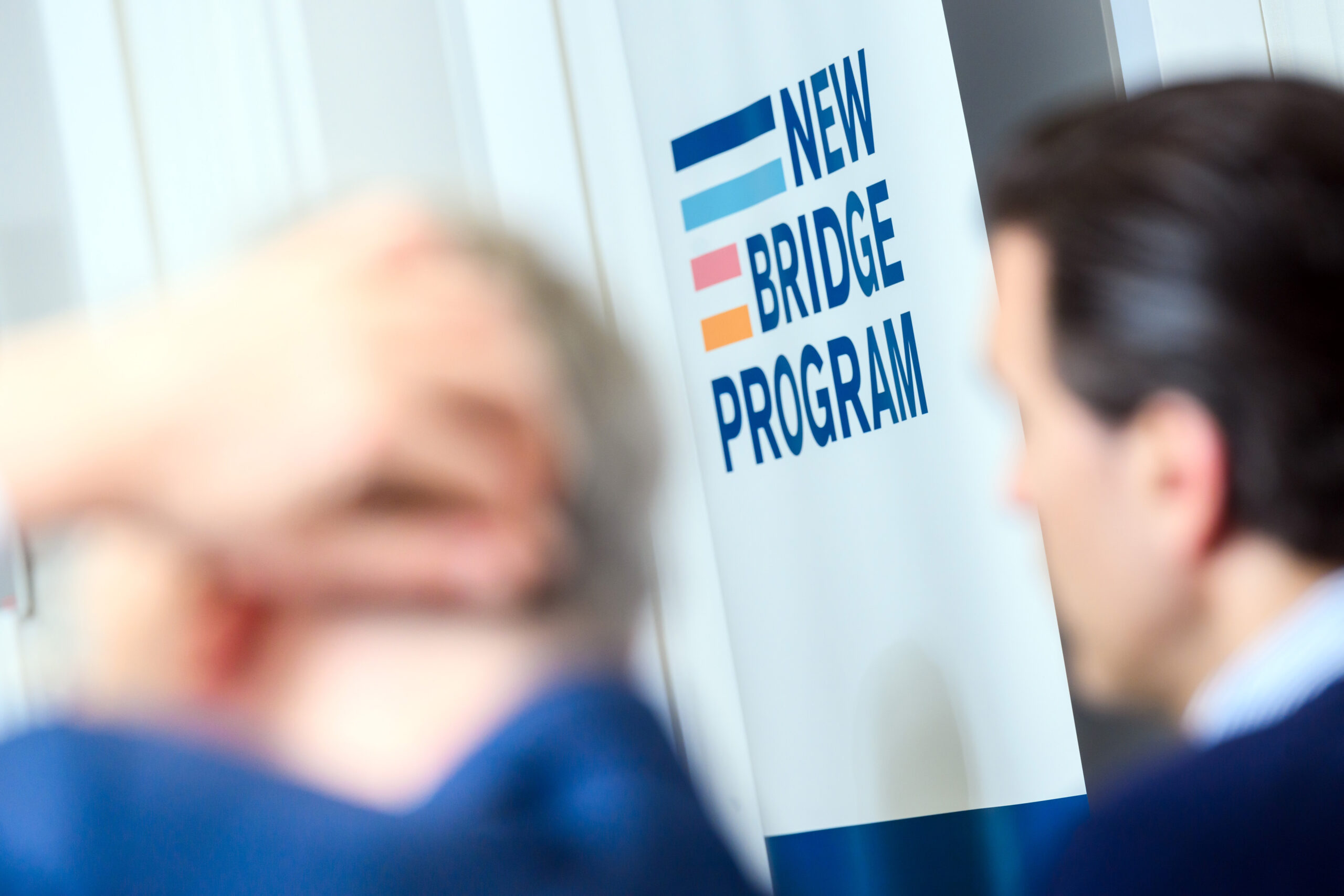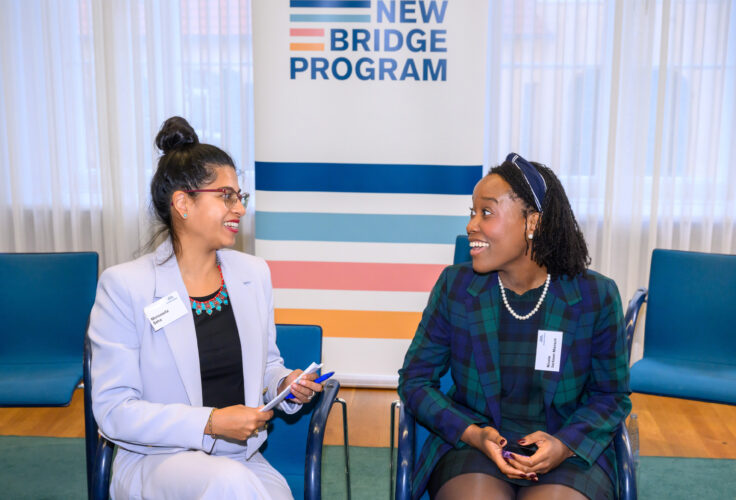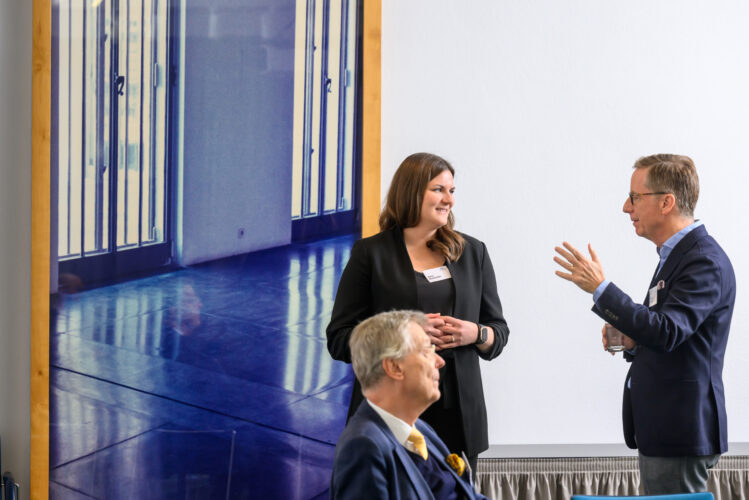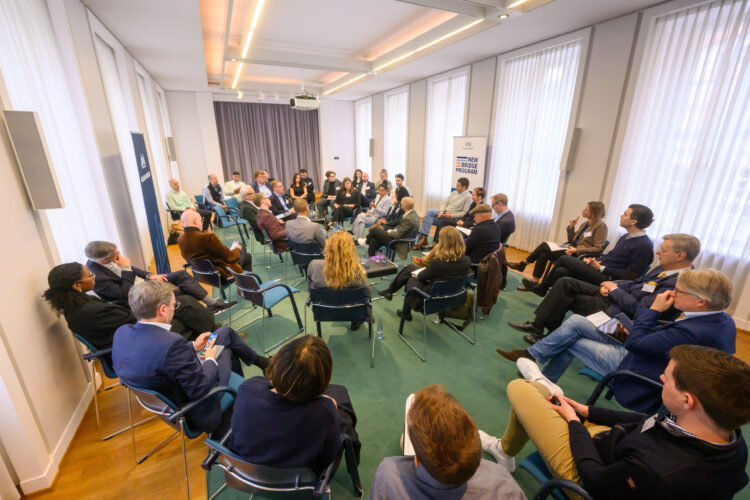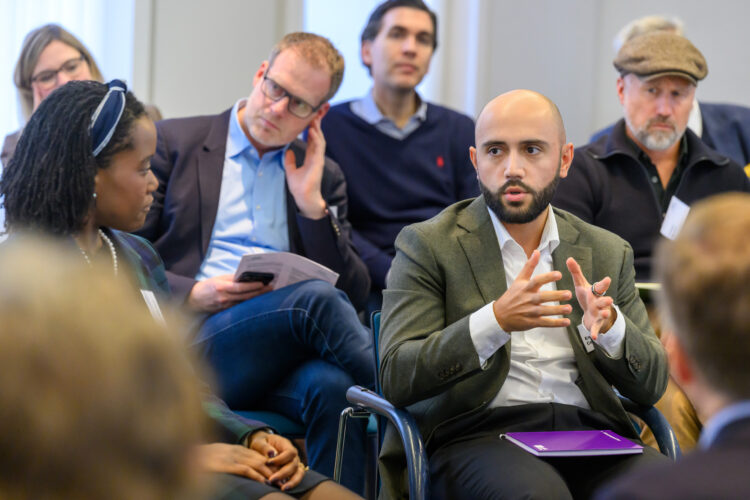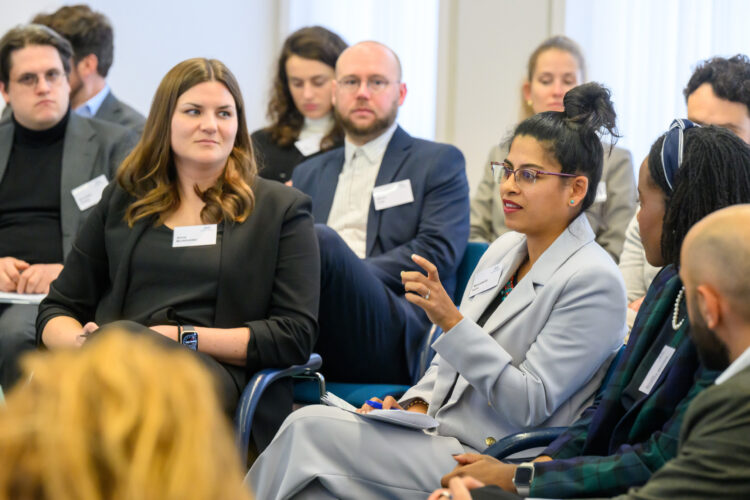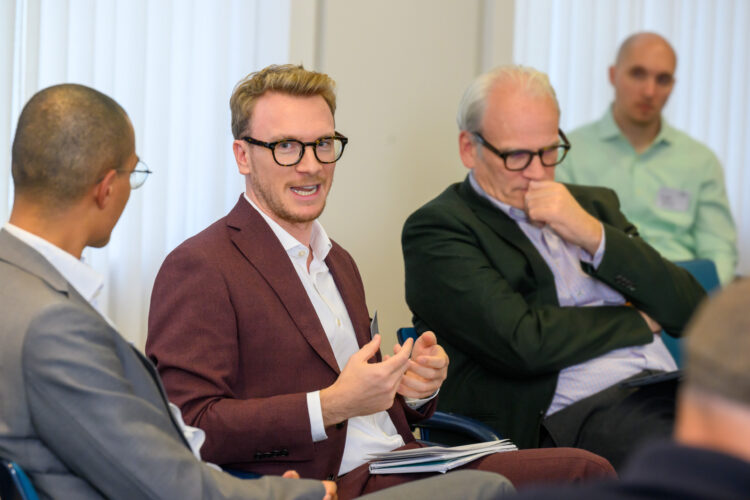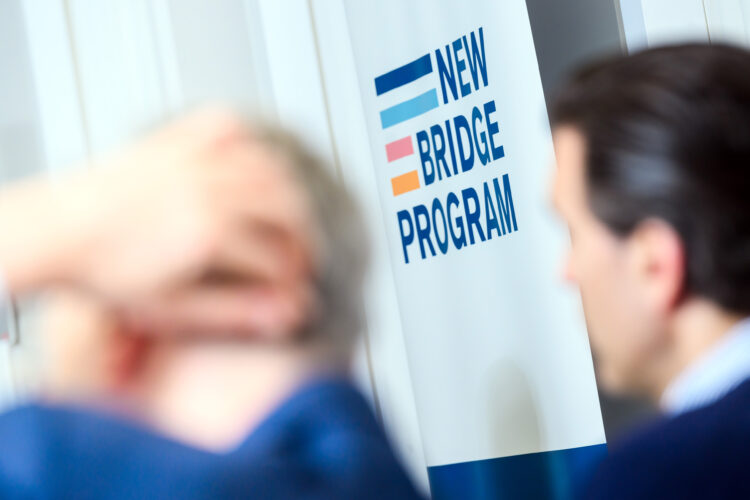The Future of Work: Challenges and the Way Forward
In November, four New Bridge alumni – two from the U.S. and two from Germany – travelled to Berlin to discuss key challenges businesses face on both sides of the Atlantic, from labor shortages and AI transformation to geopolitical risks and sustainable leadership. While the road ahead is complex, our group heard diverse perspectives and returned home with actionable ideas to navigate these pressing issues.
Here is what they learned.
In your opinion, what are the most significant challenges businesses and leaders face today?
Enver Cetin: In my opinion, businesses and leaders today face several significant challenges that are reshaping the corporate landscape. One of the most pressing is the rapid technological advancement occurring across industries. The pace of innovation, especially in areas like artificial intelligence (AI) and digital transformation, is accelerating at an unprecedented rate. Companies often struggle to keep up with these developments, as new technologies can quickly render existing business models obsolete. This relentless progression requires organizations to be agile and forward-thinking to remain competitive.
Another critical challenge is the talent shortage and skills gap. There is a growing demand for skilled professionals in tech fields. However, the supply of qualified talent is not keeping pace with this demand, making it difficult for businesses to adopt new technologies effectively. This shortage hampers innovation and can stall digital transformation initiatives, as organizations lack the necessary expertise to implement and manage advanced technological solutions.
The changing workforce dynamics also present significant challenges. The rise of remote work, the gig economy, and the expectations of younger generations for flexibility and purpose in their careers require leaders to rethink traditional management practices. Millennials and Generation Z employees often prioritize work-life balance, meaningful work, and alignment with their personal values. Leaders must adapt by creating more flexible work environments, fostering inclusive cultures, and offering opportunities for professional growth to attract and retain top talent.
Lastly, global economic uncertainty poses a formidable challenge. Geopolitical tensions, trade disputes, and fluctuating markets create an unpredictable environment that complicates strategic planning and investment decisions. Factors such as international trade policies, currency volatility, and shifting alliances can have immediate and significant impacts on global supply chains and market access. Businesses must navigate these uncertainties while remaining resilient and adaptable to sudden changes in the economic landscape.
Nicole Jackson Mansch: As part of the New Bridge Program in Berlin, we heard from workforce leaders and subject matter experts who detailed several key challenges that may yield long-term impacts on the German economy. An aging workforce, attracting and retaining skilled labor, and meeting growing demands for remote work environments amongst Gen Z employees all pose important questions for businesses, companies, and major employers in the future.
In the U.S., President-Elect Donald Trump may issue regulations that remove essential protections for American workers. Moving forward, this presents a number of challenges for many vulnerable and marginalized populations, such as low-paid salaried workers. For example, the Trump Administration may rescind an overtime pay rule issued by the U.S. Department of Labor that broadened the population of workers who received additional pay for hours worked beyond their standard 40-hour work week. A report published by the Economic Policy Institute, an American research organization and thinktank, found that adjustments made to the overtime rule in the U.S. during Trump’s first term resulted in roughly 8.2 million workers losing access to overtime pay. A number of other worker protections in the U.S. may be at risk during a Trump presidency, threatening the safety and security of workers across the country.
Joseph Langner: The most pressing issues I currently see for leaders on both sides of the Atlantic are rapid technological change, demographic shifts, and conflicts between short and long-term objectives.
Regarding technological change, leaders need to be okay with and ready for the fact that development “plateaus” are effectively gone. There is no longer a “state-of-the-art,” but rather a “change-of-the-art.” Having to constantly adapt to these changes requires even more clarity in one’s mission and a moral compass to guide through difficult challenges.
Demographic shifts, especially given an aging population in Germany, will ask leaders to put a lot more responsibility into the hands of a much younger and smaller workforce. According to a recently released study by the German Ministry of Economics (BMWK), over the next ten years, the workforce will face a net (!) decline of roughly 400.000 people. Beyond finding short-term solutions to these issues, we will need to find long-term structural levers such as an increase in female and migrant labor market participation and increases in productivity – again through embracing technological changes.
Monoswita Saha: Technology is front and center – whether that is cybersecurity, AI, data management, or basic digital skills. Technology is a means of competition at small, medium and large scale, from local to global. How to best keep up, modernize, and stay competitive while keeping an eye towards sustainable practices is a challenge. In my view, cultivating and engaging a diverse talent pipeline to grapple with and solve these challenges is equally important. The extent to which there is equal access and opportunity in these fields impacts the overall economic resiliency and stability of communities and countries. Perhaps this is two sides of the same coin.
If you could give one piece of advice to leaders on how to “futureproof,” what would it be?
Enver Cetin: My one piece of advice to leaders on how to futureproof their organizations is to embrace adaptability as a core principle. In a world where change is constant, the ability to adjust swiftly to new technologies, market shifts, and evolving customer preferences is essential for sustained success. Embracing adaptability means fostering a culture that encourages innovation, continuous learning, and openness to change at all levels of the organization. Leaders should empower employees to experiment with new ideas without fear of failure, as this can lead to breakthroughs and improvements. Investing in employee development is crucial; by providing opportunities for upskilling and reskilling, organizations ensure their workforce remains competent in the latest technologies and methodologies. Staying informed about industry trends and being willing to challenge traditional ways of doing business can help organizations anticipate changes rather than simply react to them. By making adaptability a fundamental part of the company’s ethos, leaders can better navigate uncertainties, seize new opportunities, and maintain a competitive edge in an ever-evolving landscape. This proactive approach enables organizations to not only survive but thrive amid the complexities of the modern business environment.
Nicole Jackson Mansch: To futureproof their workforce, leaders should invest in creating good, high-quality jobs for their employees. In the U.S., this means these jobs provide retirement benefits, offer health insurance coverage, provide sick leave and paid family leave, and allow workers the right to organize and engage in collective bargaining to improve their protections and get their fair share of earnings. Adhering to the above good job principles makes companies an employer of choice and give these organizations a competitive advantage in attracting and retaining the talent they need to continue innovating.
Joseph Langner: Organizations and leadership need to embrace constant change, not constants.
Monoswita Saha: Future proofing is about people proofing. The challenges will not solve themselves. Do we have and are we curating the skills and solutions-oriented mindsets to meet the future challenges head on? Are leaders investing in inclusive and diverse talent pipelines in the core areas for their businesses, organizations, and institutions? I put an emphasis on „inclusive and diverse“ because without this attention, the future proofing is only for the benefit of the select already privileged few in the global scheme of things.
How do the challenges and solutions surrounding the future of work differ between the U.S. and Germany, and what best practices or lessons can both sides learn from each other?
Enver Cetin: The United States and Germany face different challenges and have developed distinct approaches to the future of work due to their unique cultural, economic, and regulatory environments. In the U.S., the labor market is characterized by its flexibility, which fosters innovation and entrepreneurship but can also lead to less job security and benefits for workers. The American approach often emphasizes individualism and a free-market economy, resulting in rapid technological adoption but also a widening skills gap. The education system sometimes struggles to keep pace with industry needs. Germany, on the other hand, has a more regulated labor market with strong worker protections, offering greater job security and comprehensive benefits. The German vocational training system, known as the dual education system, effectively integrates classroom learning with on-the-job training, producing a skilled workforce aligned with industry needs. However, this system can also lead to rigidity, making it more challenging for businesses to adapt quickly to technological changes and market demands. German companies may be more cautious in adopting new technologies due to a cultural preference for thoroughness and risk aversion. Both countries have valuable lessons to offer each other. The U.S. could benefit from Germany’s emphasis on vocational training and workforce development, helping to bridge the skills gap by preparing students with practical, job-ready skills. Adopting some of Germany’s worker protection policies could improve job satisfaction and productivity in the U.S., leading to a more committed and stable workforce. Conversely, Germany could learn from the U.S. culture of entrepreneurship and innovation. Embracing a more agile approach to business could help German companies adapt more rapidly to technological advancements and global market shifts. Encouraging a calculated risk-taking mindset might stimulate innovation and competitiveness. Additionally, adopting flexible work arrangements, such as remote work and flexible hours, could enhance work-life balance and attract a broader talent pool.
Nicole Jackson Mansch: Germany’s aging workforce serves as one key distinguishing factor from the U.S. To attract talent, Germany has instituted a number of unique visas and partnerships with other countries to encourage skilled labor, such as in nursing, tech and engineering, to settle and work in the country. On the other hand, in the U.S., many universities serve as innovation hubs, spurring the development of new ideas and providing international students with unique skillsets the chance to create creative business concepts. Germany provides a strong social safety net for Germans – including paid parental leave after the birth of a child. The U.S. has not yet instituted federal paid parental leave, despite the work of prominent advocates like Melinda French Gates, American philanthropist and former Microsoft manager.
Joseph Langner: Germany and Europe will likely take a much longer time to implement technological advances than the U.S. However, this also provides more time to reflect on societal impacts of these changes, e.g., AI in the workplace. Smart regulation (both in organizations and legally) is a potential European differentiator while the U.S. will likely continue to drive major innovation (with relatively much less regulation). As both our governments are currently in a transition phase, it is up to leaders in other sectors to set impulses and push new solutions without waiting for public forward guidance.
Monoswita Saha: Germany is ahead of the game in its approach to labor laws and its apprenticeship models. Though one can make the argument that too strict labor laws stifles innovation and investment, there is a tangible benefit to social stability from these protections. The apprenticeship model is one that I believe the U.S. should implement at a higher and more expansive rate – and with that, also address the stigma that is attached to candidates who do not have the traditional four-year college or university degree. These degrees have always been and are increasingly cost-prohibitive for many. On the U.S. side, this is a country that rewards risks – or at least that is how I have found it through personal experience. It is possible for entrepreneurs to try and fail and try and fail until they fine tune a model that works. It is a blend of mindset and financial structures. It is by no means perfect. Failure does not need to ruin a career or the family savings plan for life. There is such a thing as American optimism, and for me, a solutions-oriented approach is half the battle.
Our Experts:
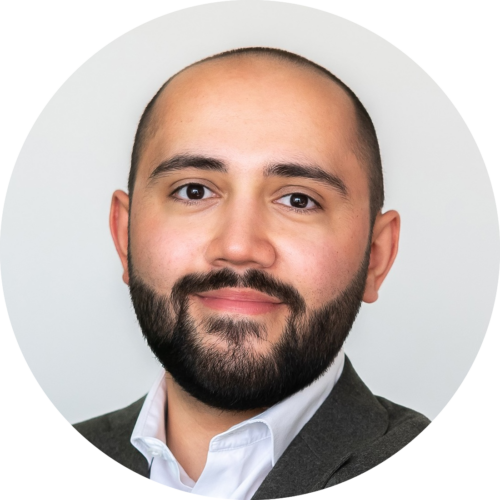 Enver Cetin is a Senior Manager of AI at Ciklum, based in Munich, Germany, where he excels in deploying the latest technologies, including Generative AI. An expert in this cutting-edge field, Enver leads strategic implementations, driving innovation and transforming business processes with AI solutions. Previously, he headed the Process and Digital Excellence team at a logistics company, where he crafted a digital excellence roadmap that significantly reduced administrative times and improved operations through strategic integration of automation and data analysis. With a Master’s in Business Consulting & Digital Management and a Bachelor’s in Computer Science, Enver combines deep technical expertise with a profound understanding of digital transformation’s societal impacts. Outside of work, Enver is an avid traveler and tech enthusiast. When not pioneering AI solutions, you can find him exploring new cultures, running marathons, or engaging in political and economic exchanges. His curiosity and love for learning drive his innovative spirit in both life and work.
Enver Cetin is a Senior Manager of AI at Ciklum, based in Munich, Germany, where he excels in deploying the latest technologies, including Generative AI. An expert in this cutting-edge field, Enver leads strategic implementations, driving innovation and transforming business processes with AI solutions. Previously, he headed the Process and Digital Excellence team at a logistics company, where he crafted a digital excellence roadmap that significantly reduced administrative times and improved operations through strategic integration of automation and data analysis. With a Master’s in Business Consulting & Digital Management and a Bachelor’s in Computer Science, Enver combines deep technical expertise with a profound understanding of digital transformation’s societal impacts. Outside of work, Enver is an avid traveler and tech enthusiast. When not pioneering AI solutions, you can find him exploring new cultures, running marathons, or engaging in political and economic exchanges. His curiosity and love for learning drive his innovative spirit in both life and work.
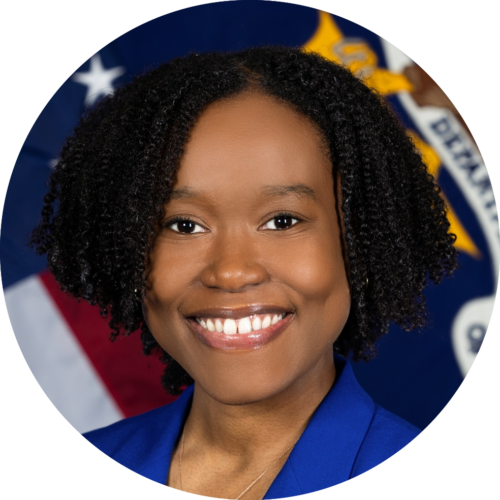 Nicole Jackson currently serves as White House Liaison at the U.S. Department of Labor as part of the Biden-Harris Administration. Prior to joining the Department, Nicole was the Deputy Associate Director of Policy at the White House in the Office of Dr. Jill Biden. Before joining the Biden-Harris Administration, Nicole worked in Mayor Mike Duggan’s Office of Workforce Development in Detroit, Michigan. While there, she led a temporary work experience program for returning citizens during the COVID-19 pandemic. She has also held roles at the U.S. Department of Health and Human Services, and she previously interned at the White House Domestic Policy Council during the Obama Administration. She earned her bachelor’s degree in Urban Studies from Stanford University and received her M.S. in Community Health and Prevention Research (CHPR) from the Stanford University School of Medicine.
Nicole Jackson currently serves as White House Liaison at the U.S. Department of Labor as part of the Biden-Harris Administration. Prior to joining the Department, Nicole was the Deputy Associate Director of Policy at the White House in the Office of Dr. Jill Biden. Before joining the Biden-Harris Administration, Nicole worked in Mayor Mike Duggan’s Office of Workforce Development in Detroit, Michigan. While there, she led a temporary work experience program for returning citizens during the COVID-19 pandemic. She has also held roles at the U.S. Department of Health and Human Services, and she previously interned at the White House Domestic Policy Council during the Obama Administration. She earned her bachelor’s degree in Urban Studies from Stanford University and received her M.S. in Community Health and Prevention Research (CHPR) from the Stanford University School of Medicine.
 Joseph Langner is a Co-Managing Director at JoinPolitics, a non-partisan, non-profit incubator for political talents in Germany. Joseph’s work focuses on developing new approaches to political entrepreneurship, innovation, and funding to promote and strengthen democracy in Germany and Europe. Joseph is a member of the Grantmaking Council of Multitudes Foundation, an advisor to the 2hearts Community, and a supporter of the Afro-Diasporic Academics Network (ADAN e.V.). Previously, he worked as a consultant to European institutions as a Project Manager and Chief of Staff in the Public Sector & Digital Practices at Oliver Wyman. Joseph studied Business Administration, Philosophy, and Economics at the University of Mannheim and the WASEDA Business School in Tokyo. He is a scholar of the Deutschlandstiftung Integration and a former national board member of AIESEC in Germany.
Joseph Langner is a Co-Managing Director at JoinPolitics, a non-partisan, non-profit incubator for political talents in Germany. Joseph’s work focuses on developing new approaches to political entrepreneurship, innovation, and funding to promote and strengthen democracy in Germany and Europe. Joseph is a member of the Grantmaking Council of Multitudes Foundation, an advisor to the 2hearts Community, and a supporter of the Afro-Diasporic Academics Network (ADAN e.V.). Previously, he worked as a consultant to European institutions as a Project Manager and Chief of Staff in the Public Sector & Digital Practices at Oliver Wyman. Joseph studied Business Administration, Philosophy, and Economics at the University of Mannheim and the WASEDA Business School in Tokyo. He is a scholar of the Deutschlandstiftung Integration and a former national board member of AIESEC in Germany.
 Monoswita Saha is a driven leader who is committed to fostering ecosystems for equity. Monoswita is the CSR Global Employee Engagement Leader and Advisor to the Kyndryl Foundation for Kyndryl, the world’s largest provider of IT infrastructure services. Monoswita drives a global engagement strategy that harnesses Kyndryl’s expertise and values to drive enduring impact. Additionally, Monoswita plays a pivotal role in launching the Kyndryl Foundation within two years of Kyndryl becoming a public company, a milestone moment for the company. Previously, Monoswita led the global implementation and network engagement strategy for Pathways and Technology (P-TECH), IBM’s marquee Corporate Social Responsibility program that aims to create an alternative pathway for young people in low-income communities to find meaningful employment in STEM careers. Monoswita drove innovation, communications, thought leadership, and foundational learning for a network that spanned over 25 countries. Monoswita holds a bachelor’s degree in economics and English from the University of Connecticut and a master’s degree in public administration from the Columbia University School of International and Public Affairs.
Monoswita Saha is a driven leader who is committed to fostering ecosystems for equity. Monoswita is the CSR Global Employee Engagement Leader and Advisor to the Kyndryl Foundation for Kyndryl, the world’s largest provider of IT infrastructure services. Monoswita drives a global engagement strategy that harnesses Kyndryl’s expertise and values to drive enduring impact. Additionally, Monoswita plays a pivotal role in launching the Kyndryl Foundation within two years of Kyndryl becoming a public company, a milestone moment for the company. Previously, Monoswita led the global implementation and network engagement strategy for Pathways and Technology (P-TECH), IBM’s marquee Corporate Social Responsibility program that aims to create an alternative pathway for young people in low-income communities to find meaningful employment in STEM careers. Monoswita drove innovation, communications, thought leadership, and foundational learning for a network that spanned over 25 countries. Monoswita holds a bachelor’s degree in economics and English from the University of Connecticut and a master’s degree in public administration from the Columbia University School of International and Public Affairs.
A huge thank you to the German Federal Foreign Office (AA) for making this alumni engagement opportunity possible.

